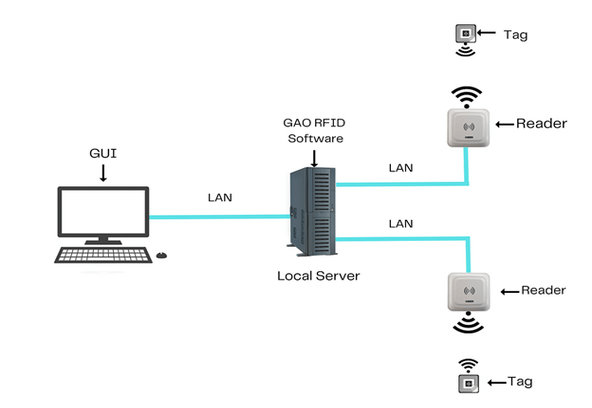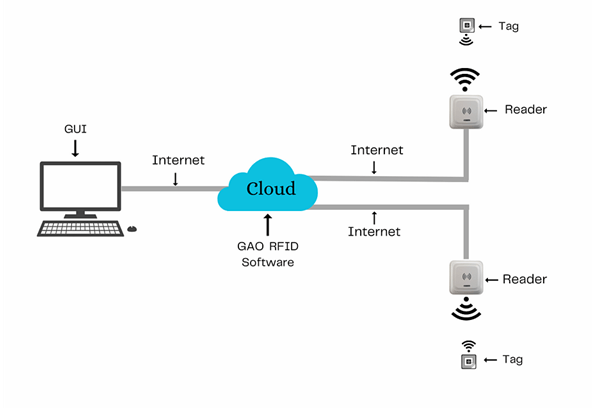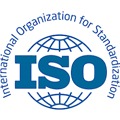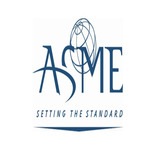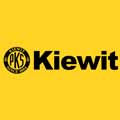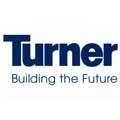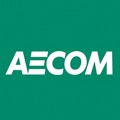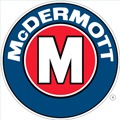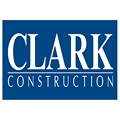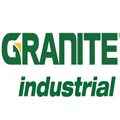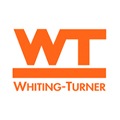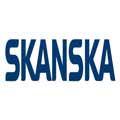The industrial construction industry refers to the process of constructing buildings, structures, and facilities used for manufacturing, processing, and other industrial activities. These projects can involve large-scale construction, heavy machinery, and specialized materials and techniques. Industrial construction may include the construction of factories, warehouses, power plants, refineries, and other facilities. The aim is to create safe and functional spaces that can accommodate a range of industrial activities while also meeting environmental and regulatory standards. GAO RFID Inc., a global top 10 leader in RFID, has extensive experience in the industrial construction industry.
GAO RFID Systems & Hardware for the Industrial Construction
GAO RFID Inc. offers the largest selection of BLE gateways, BLE beacons, RFID readers, tags, antenna, printers, and integrated RFID systems for various industries, including the industrial construction industry.
BLE (Bluetooth Low Energy)
GAO offers advanced BLE gateways:
as well as versatile beacons with such important functions as temperature, humidity, vibration, and panic button
- IP67 Rated BLE 2.45GHz Active RFID Wristband Tag w/ Panic Button
- BLE 2.45GHz Ultra Rugged Active RFID Pallet Tag/Beacon
- BLE 2.45GHz Active RFID Asset Tag/Beacon
GAO’s BLE technology is suitable for all kinds of industries, including the industrial construction industry.
UHF (Ultra High Frequency) RFID
GAO offers the largest selection of UHF RFID readers for various industries, including the industrial construction industry
GAO RFID offers the widest choice of UHF RFID tags, labels, badges, wristbands for various industries, including the industrial construction industry
and an array of antennas to address different applications
HF (High Frequency), NFC (Near Field Communications) and LF (Low Frequency) RFID
GAO offers the largest selection of HF, NFC, and LF RFID readers for various industries, including the industrial construction industry
- 134.2KHz ISO11784/5 FDX RFID Plug and Play Portable Reader
- 134.2 kHz LF Long Range Fixed RFID Reader
HF, NFC and LF RFID tags, labels, badges, wristbands for various industries, including the industrial construction industry
and antennas
GAO also offers RFID printers
Digital I/O adapters:
and relay controllers
For embedded applications, GAO offers UHF, HF and LF RFID reader modules
The RFID systems by GAO are highly popular for clients in the industrial construction industry
People or workers tracking system
Physical asset or operational equipment tracking system
- GAO RFID Construction and Industrial Machinery Rental Asset Management System
- HIGH FREQUENCY 13.56 MHZ PASSIVE RFID READERS
- ACTIVE 433 MHZ RFID READERS
Personnel or people access control system
Parking or vehicle control system
There are two versions of GAO’s software, one is running on a local server, and another running in the cloud.
GAO offers free samples of its RFID tags, labels, badges, and wristbands.
GAO offers a free trial for all of its software available.
Applications & Benefits of GAO’s RFID, BLE, IoT & Drones for Industrial Construction
The Industrial construction industry can significantly benefit from the integration of BLE, drones with RFID, and IoT with RFID technologies. These technologies can enhance the monitoring, tracking, and safety of workers and equipment, increase productivity, and reduce costs.
RFID (Radio Frequency Identification) technology is a powerful tool that has many unique benefits for the industrial construction industry. One of the primary benefits is its ability to provide real-time tracking and monitoring of equipment and materials on construction sites. With RFID technology, equipment and materials can be easily tracked, ensuring they are delivered to the right location at the right time, reducing delays and increasing productivity. Our RFID products improve safety while monitoring workers’ movements and ensure can help to prevent accidents and improve overall safety.
BLE technology is particularly useful on construction sites as it has a long range of up to 300 meters. BLE can be used for access control, where authorized personnel can access specific zones while unauthorized individuals are restricted. Our BLE beacons can be attached to excavators, cranes, bulldozers, loaders, backhoes, and other heavy machinery which are used to move and shape materials and structures on the industrial construction sites.
Drones equipped with RFID readers offer a portable and flexible option for tracking workers, tools, and equipment at large construction sites. They can detect safety hazards and provide a bird’s-eye view of the job site, allowing for better planning and monitoring of the construction process. The real-time tracking and monitoring capabilities of the drones, coupled with their flexibility and portability, allow them to quickly and easily cover large areas of the job site. This means that assets can be tracked and located in real-time, allowing for faster and more accurate decision-making. Our RFID products uses radio waves to identify and track objects with RFID tags attached to them. It contains an antenna and a microchip, which store information about the object, such as its location, status, and maintenance needs. The real-time tracking and monitoring capabilities of the drones, coupled with their flexibility and portability, allow them to quickly and easily cover large areas of the job site. This means that assets can be tracked and located in real-time, allowing for faster and more accurate decision-making.
IoT sensors, such as humidity, temperature, and vibration sensors, can monitor inventory levels in real-time, ensuring that necessary components are available when needed. This reduces manual processes and allows workers to focus on critical tasks. By automating data such as storage area, supply levels, and usage, which can be achieved with BLE, workers can track wires, cables, conduits, and pipes that are often stored in various locations. Strategically placed gateways can ensure that theft and loss of equipment are prevented. The integration of IoT sensors and our RFID products has significant potential to improve the efficiency and safety of the industrial construction industry. It improves productivity by tracking the usage of equipment and tools. It reduces cost by monitoring the usage of equipment and tools. It enhances safety by tracking the location of pavers, excavators, cranes, jackhammer, tools, and architect, welder, plumber, site manager, etc. It improves decision-making by the data collected by IoT sensors and our RFID tags can be used to make more informed decisions about equipment.
GAO Helps Customers Comply with Standards, Mandates & Regulations of the Industrial Construction
GAO RFID Inc. has helped many companies in the industrial construction industry to deploy RFID systems and to ensure such deployments complying with the applicable industry standards, mandates and government regulations:
- ISO 18000-6C: This is a standard for air interface and communication protocol for RFID tags used in item management applications. It is commonly used in the industrial construction industry to track and manage assets and materials.
- ASME B30.9-2018: This is a standard for slings used for lifting purposes. It includes requirements for the use of RFID tags for tracking and managing slings in the industrial construction industry.
- Construction and Demolition (C&D) Recycling Ordinances: Some cities and states have implemented C&D recycling ordinances that require the use of RFID tags on certain construction materials to improve recycling rates and reduce waste
- The Federal Emergency Management Agency (FEMA) has regulations related to emergency preparedness and response in industrial construction settings, including the “National Incident Management System” (NIMS) and the “Emergency Support Function (ESF).
- Americans with Disabilities Act (ADA): The ADA prohibits discrimination based on disability and sets standards for accessibility in construction projects, including requirements for accessible routes, doorways, and restrooms.
- Canadian Environmental Protection Act (CEPA): This act regulates the use, handling, and disposal of hazardous substances, including those used in industrial construction activities.
- Canadian Environmental Assessment Act (CEAA): The CEAA requires environmental assessments for projects that may have a significant environmental impact, including some industrial construction projects.
GAO’s software provides API
GAO’s popular RFID software such as personnel tracking asset tracking, access control, parking system control offers a free trial and offers an API to each of the common software in the industrial construction industry
Personnel Management
- Recruitment and Selection of Skilled Workers: For recruitment and selection skillful workers are prefer in such areas, such as electrical, plumbing, welding, and heavy equipment handler.
- Training and Development Programs for Employees: Training and development programs are carried out for creating skillful and knowledgeable worker.
- Payroll and Benefits Administration: Payroll and benefits administration are run to ensure employees are paid accurately and on time.
Equipment Management
- Procurement and Acquisition of Equipment: The procurement and acquisition process requires careful planning to ensure that the equipment meets the project’s specifications, budget, and timeline.
- Maintenance and Repair of Equipment: Maintenance and Repair of Equipment are carried out to ensure that the equipment remains in optimal working condition, reducing the risk of accidents, downtime, and costly repairs.
- Utilization and Efficiency Management: Utilization management involves managing equipment, materials, and labor to ensure they are used effectively and efficiently.
Supply Chain Management
- Procurement and Purchasing of Raw Materials and Supplies: Procurement and purchasing of raw materials and supplies are crucial such as cement, steel, lumber, and electrical components are needed to complete construction projects.
- Inventory Management and Control: Inventory management and control to ensure that materials and supplies are available when needed and that inventory levels are optimized to minimize waste and excess.
- Logistics and Transportation Management: Logistics and transportation management help to ensure that materials, equipment, and personnel are transported.
Case Studies of RFID Applications
case study of RFID application in the Hansel Phelps Construction Company
The Hansel Phelps Construction Company has been involved in many unique and challenging projects over the years. One notable case study is the construction of the San Diego International Airport Terminal 2 West Expansion project. The case study was conducted through the Terminal 2 West Expansion project involved the construction of a new 10-gate terminal building, a new parking garage, and an expanded roadway system. The project began in 2009 and was completed in 2013, with a total cost of approximately $1 billion. The pipeline construction was spread across a vast area, and the project team faced challenges in tracking the location and status of materials and equipment. The use of RFID technology helped to overcome these challenges and improve project efficiency. The use of RFID technology in this project also enabled the project team to optimize the use of equipment. RFID tags attached to each piece of equipment enabled the team to monitor the location and usage of equipment, ensuring that equipment was used only where needed and reducing downtime.
Another case study of RFID application in the Turner Construction Company
A case study about Turner Construction Company located at New York City. Initially it faced problems that Turner Construction had a challenge of managing tools and equipment on a large construction project, making it difficult for workers to quickly locate the items they needed. This led to delays and increased costs as workers had to spend time searching for tools and equipment. How Turner Company addresses these challenges, Turner Construction implemented an RFID system to track tools and equipment on the job site. RFID system was being used, RFID tags attached to each tool and piece of equipment, and RFID readers located throughout the job site to track the location of each item. The RFID data was integrated with Turner Construction’s construction management software, providing real-time visibility into the location and status of each tool and piece of equipment. RFID system were being used by workers were able to quickly locate the tools and equipment they needed, reducing the time and cost associated with searching for items. The system also helped to improve safety by ensuring that workers had access to the right tools and equipment for the job.
GAO Has Served the Industrial Construction Extensively
GAO RFID Inc., a global top 10 leader in RFID, has served many leading companies in industrial construction, including its various divisions such as:
- Oil and gas industry: This sector involves the construction of refineries, pipelines, and other facilities for the extraction, processing, and transportation of oil and gas.
- Power generation and transmission: This sector involves the construction of power plants, transmission lines, and substations for the generation and distribution of electricity.
- Chemical and petrochemical industry: This sector involves the construction of chemical processing plants, petrochemical refineries, and other facilities for the manufacturing of chemicals and related products.
- Manufacturing and processing: This sector involves the construction of factories, plants, and other facilities for the production of various goods, including automobiles, consumer products, and electronics.
- Mining and metals industry: This sector involves the construction of mines, processing facilities, and other infrastructure for the extraction and processing of minerals and metals.
- Infrastructure and transportation: This sector involves the construction of roads, bridges, airports, and other transportation-related infrastructure, as well as water treatment plants, wastewater treatment facilities, and other types of infrastructure.
The leading companies of industrial construction industry in the US:
The leading companies of industrial construction industry in Canada:


